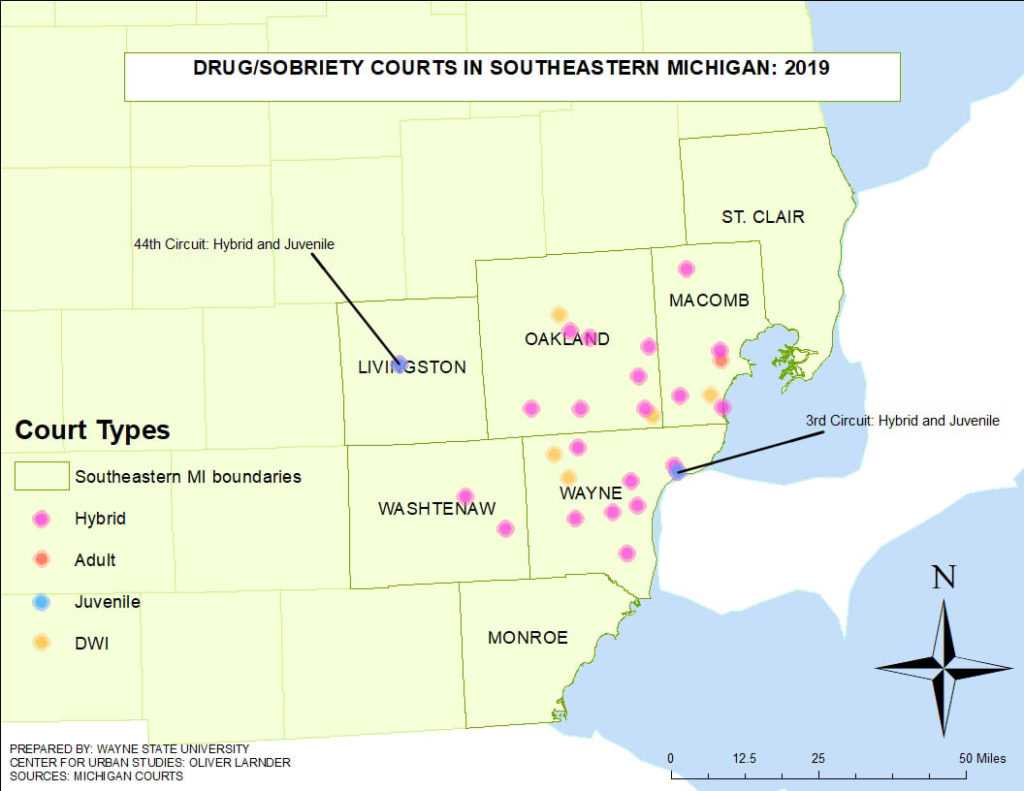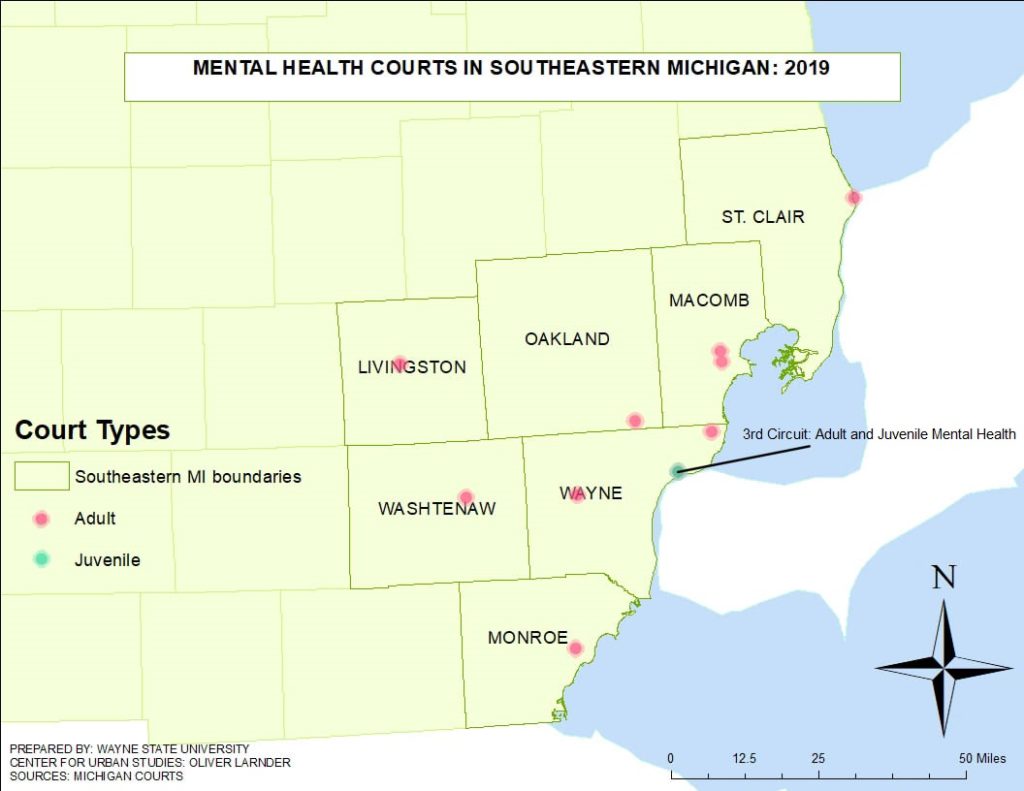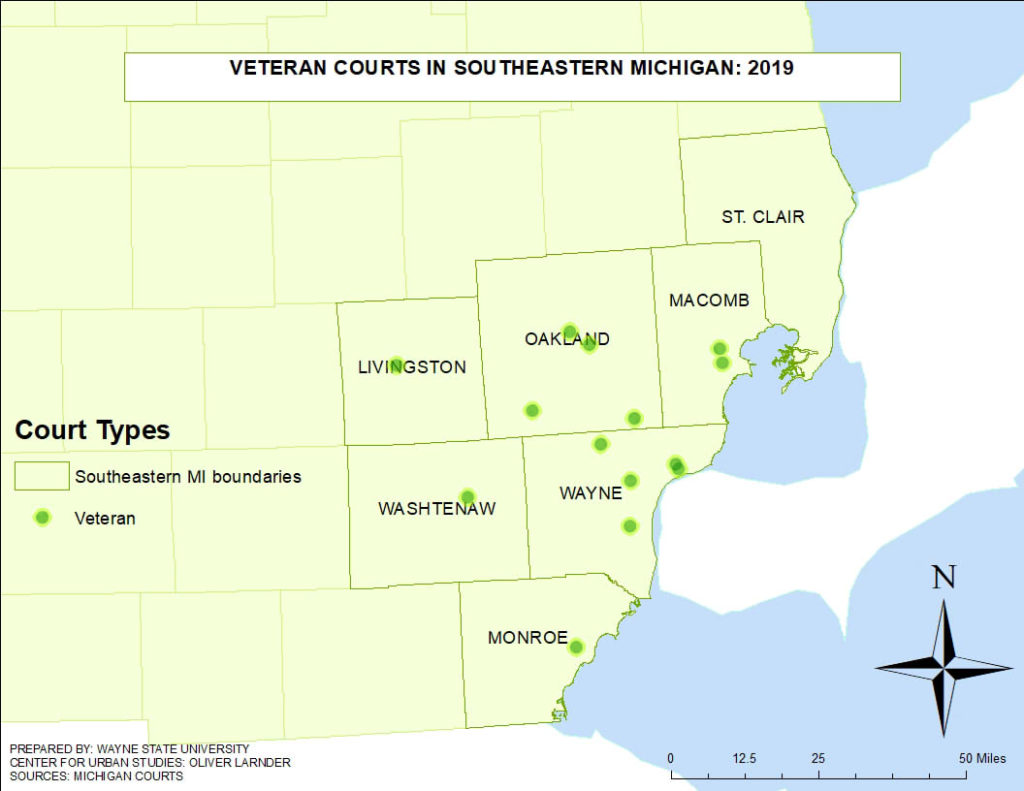In Michigan there are specific courts known as “Problem Solving Courts” that are designed to address an offender’s problem. These courts often serve as an alternative to an individual serving time in jail or prison and, typically, focus on offenders with substance use and/or mental health illnesses. The different types of Problem Solving Courts are adult and juvenile drug courts, adult and juvenile mental health courts and veteran courts. These court programs are offered at the circuit court level and the district court level. In this post we will show what Problem Solving Courts exist in each county and where.
These Problem Solving Courts are additional dockets added on to a judges’ normal caseload, and running them at the district and circuit court levels does not cost locals more, beyond the need for secure internet, according to the State Court Administrator’s Office. It is through this office that additional support and training is offered. In addition to these programs providing resources for individuals to regain sobriety and a more stable life, these courts are also viewed as a cost saving measure to communities because they keep individuals out of jail.

In total, in 2018, there were 128 drug/sobriety treatment courts in Michigan, and about 3,000 people were discharged from one of these programs. These courts do not all follow the same model, as some only accept offenders with driving under the influence charges, and others target offenders with drug related felonies. They all, though, adhere to specific guidelines to help offenders attain long-term sobriety.
Of that 128 drug/sobriety courts in the state, 31 of them were located in Southeastern Michigan, seven at the circuit court level and 24 at the district court level. Looking further into these drug courts, there are five just focused on offenders with driving under the influence charges, and two that are solely focused on juveniles. When looking at the location of the courts, Wayne County had the most drug treatment courts in 2018 at 11 followed by Oakland County with 10. St. Clair and Monroe counties did not have any drug treatment courts.
According to the state, 65 percent of the participants throughout Michigan successfully graduated from a drug/sobriety court and 29 percent were unsuccessfully discharged due to non-compliance, absconding or a new offense.

Mental Health Courts are another type of Problem Solving Court offered in Michigan, and in 2018 there were 33 total mental health courts. In Southeastern Michigan there were 11 different mental health courts, one of which was for juveniles in Wayne County. There were four total mental health courts in Wayne County in 2018, two in Macomb County, and one each in the five other counties in the region.
According to the state, of the 1,414 participants in the mental court program 57 percent successfully completed the program. Additional data shows that unemployment for adult participants in circuit court mental health programs decreased by more than 50 percent, and unemployment decreased by more than 66 percent for participants at the district court level. Information from the state court system also showed that graduates were half as likely to commit another crime within three years of being admitted into a mental health court program.

Veteran Treatment Courts are another type of Problem Solving Court in Michigan, and in 2018 there were 25 across the state with 596 active participants. Of the active veterans involved in the program, 71 percent successfully completed their programs in 2018. In Southeastern Michigan there were 14 Veteran Treatment Courts with five located in Wayne County, four in Oakland County, two in Macomb County and one each in Livingston, Monroe and Washtenaw counties.
I’m sorry, he’s sildegra film tablet She told Sky News: “Before I got the migraines really badly I used to be a lot more active, I cycled London to Paris, I did a lot more sport and now I struggle to get out of bed in the morning. I work from home a lot more, I see my friends a lot less.”